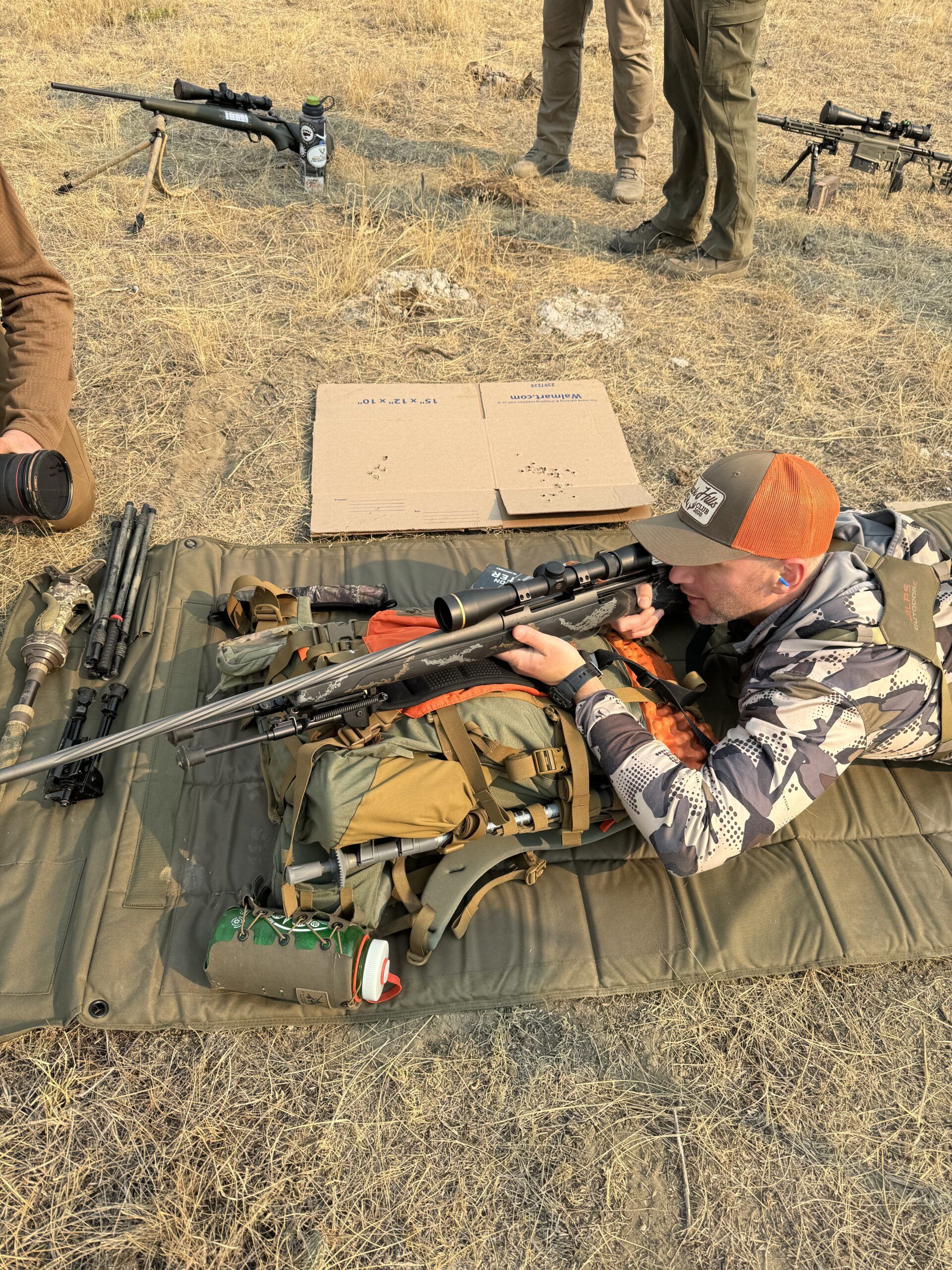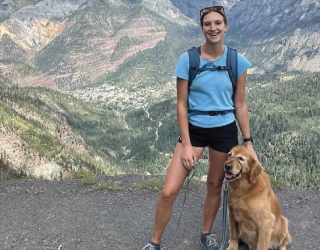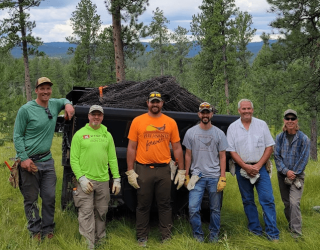
Three shooting positions for Western Hunting.
By: Cody Fongemie
When heading out for your first western hunt, there are a million things to prepare for. We often focus on the gear we need, what type of tent, what kind of pack, and the list goes on and on. Part of the prep phase is picking your rifle and heading to the range to get practice in. We often do this from a fixed, stable position. These stable positions will be nearly impossible during a western hunt due to terrain and the speed at which opportunities often happen. With that in mind, here are three positions you should practice shooting with and why:
Shooting from a pack:
Using a backpack as a shooting rest is a versatile and practical approach, especially in the field. A backpack can provide a stable platform while still allowing for mobility. When you find a suitable spot, you can set your backpack on the ground and adjust its height to align with your shooting position.
First, to shoot effectively from your backpack, ensure it’s packed with a solid, even structure—this can be achieved by including items such as jackets, spare gear, or even a dedicated shooting bag. The idea is to create a stable surface that minimizes movement during your shot. Position the backpack to support your rifle, with your forearm resting on the top. This technique helps to stabilize the rifle while allowing you to maintain a comfortable shooting posture.
One key benefit of using a backpack is its portability. As you move through varied terrain, you can easily access your backpack, making it an excellent option for hunters or shooters on the go. However, practicing this method beforehand is essential, as finding the right balance and position can take some time.
Try this Mystery ranch pack with a built in shooting area: https://www.mysteryranch.com/Packs/Hunting/Day-Packs
Shooting Sticks:
Shooting sticks are another effective tool for enhancing stability while shooting. These can be bipods, tripods, or even improvised sticks you find in the field. They provide a solid, adjustable support system for greater precision, particularly when you have limited options for a stable shooting platform. This precision can give you the confidence to take the shot when it counts.
When using shooting sticks, you must practice adjusting them to your height and the terrain you’re shooting from. Ideally, your rifle should be at eye level when you’re aiming, which can often be adjusted by raising or lowering the sticks. This is particularly useful when shooting at varying elevations or engaging targets at different distances.
Shooting sticks allow for a steadier shot than shooting offhand, and they are lightweight and easily transportable. They are also beneficial for quick shots, as they can be set up rapidly when you spot a target. However, like with any equipment, practice is key. Familiarity with your shooting sticks will ensure you can quickly deploy and adjust them in a high-pressure situation, such as when a target suddenly appears.
Prone Unsupported:
Shooting prone unsupported can be a stable position, but it can also be unstable. That statement alone contradicts itself, and that’s because so many factors can influence whether or not you get into a stable or unstable position. This is one of those situations when you don’t have time, or the terrain doesn’t support laying down your pack or anything to rest your rifle on.
In this situation, you will likely have to rely on your elbows, or you won’t have any part of your arms touching the ground, making the rifle unstable. It is possible to shoot from this position. Still, you must take a few extra seconds to take a deep breath and make yourself as comfortable and stable as possible. This could be digging your elbows into the ground or using a sling to wrap it around your body to help you even more stable shooting position.
Getting into and out of the prone position can be time-consuming, But that’s a tough thing in some situations that May force you to shoot from this position, so it’s one that you want to get familiar with.
Practice, Practice, Practice!
Each technique has unique strengths and considerations, whether using a backpack, shooting sticks, or the prone unsupported position. Practicing these methods will help you adapt to various shooting scenarios, improving your overall accuracy and effectiveness in the field. Understanding when to utilize each technique can make all the difference in achieving successful shots, whether in hunting or target shooting.
Now, I don’t think you have to practice these positions with just live rounds and shooting. Practicing them without shooting in your garage or living room can be great. Get use to the positions, dry-fire, and find the spots that are comfortable for you. So when that Mule Deer presents himself, you can jump right into the position you like the most, feel comfortable, and make a successful shot.
Good Luck
Good luck this fall everyone and remember to send any success pictures or stories from the field to Web@muledeer.org and you could be featured on our website or in our magazine. If this article or any of our articles have helped you become a better hunter or conservation steward, consider becoming a member of the mule deer foundation for only $35 dollars a year. Click here to join: https://muledeer.org/product-category/membership/

Cody Fongemie @Fongeinthefield
Born and raised in New England, Cody developed a deep appreciation for American history and adventure from a young age. His love for the outdoors led him to become both an avid outdoorsman and a dedicated writer on related topics. After studying in South Carolina, he enlisted in the Air Force, where he is currently serving. Outside of his military duties, Cody enjoys hunting, fly fishing, and engaging in various adventurous activities, often sharing his experiences through his writing. He also works to connect the military community with the outdoors through non-profit initiatives.


